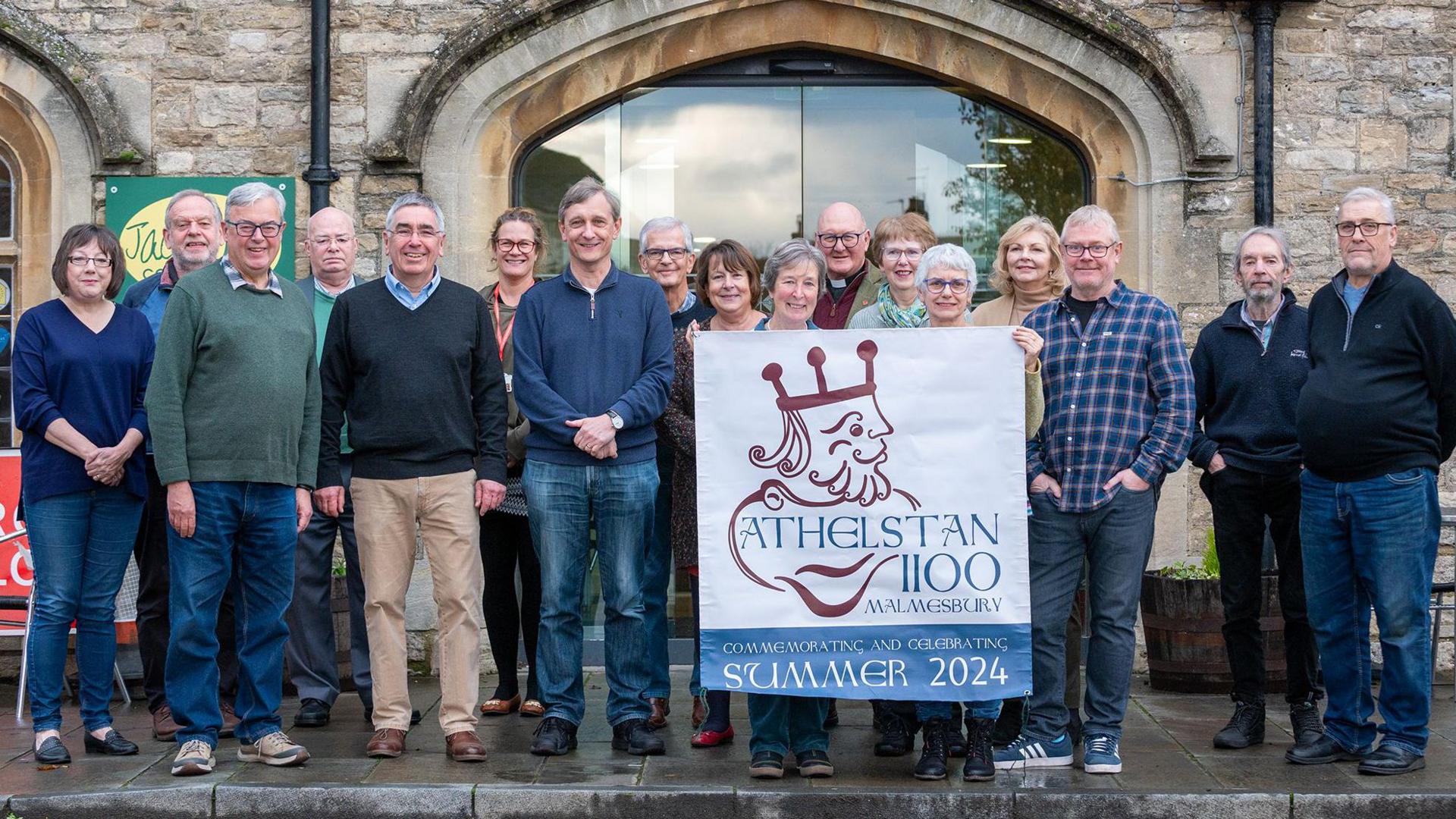More re-enactors than ever at history festival
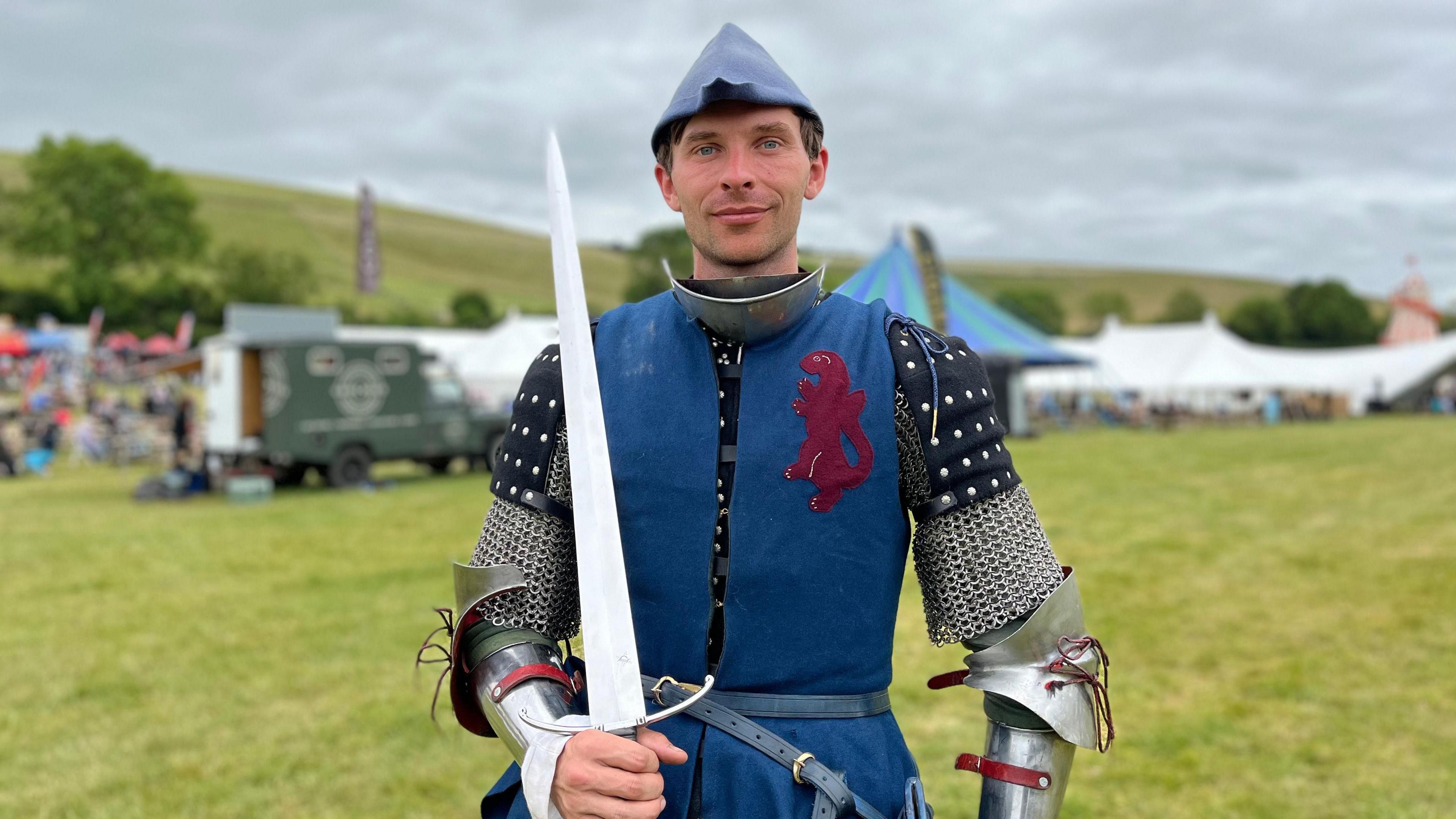
Rory Ware wears five stone worth of armour for his sword-fighting displays as part of a living history group
- Published
While Somerset hosts Glastonbury, next door in Wiltshire, there is another well-known festival on at the same time - the Chalke History Festival.
It has been running for more than a decade and attracts about 20,000 people each year with living history displays and talks from historians and celebrities.
The festival is always a big draw for anyone with an interest in the past, but this year, more re-enactors than ever have been invited and there has been a change in branding in the hope of widening its appeal.
Organisers have also invited the likes of James May and historian duo Tom Holland and Dominic Sandbrook, with Sunday's headliners including English historian and broadcaster, Bettany Hughes, BBC correspondent Frank Gardner and former England cricket captain David Gower.
The week-long event, which started on Monday, has featured more performances, spanning from the Iron Age through to Word War Two - in a year that sees the 80th anniversary of D-Day.
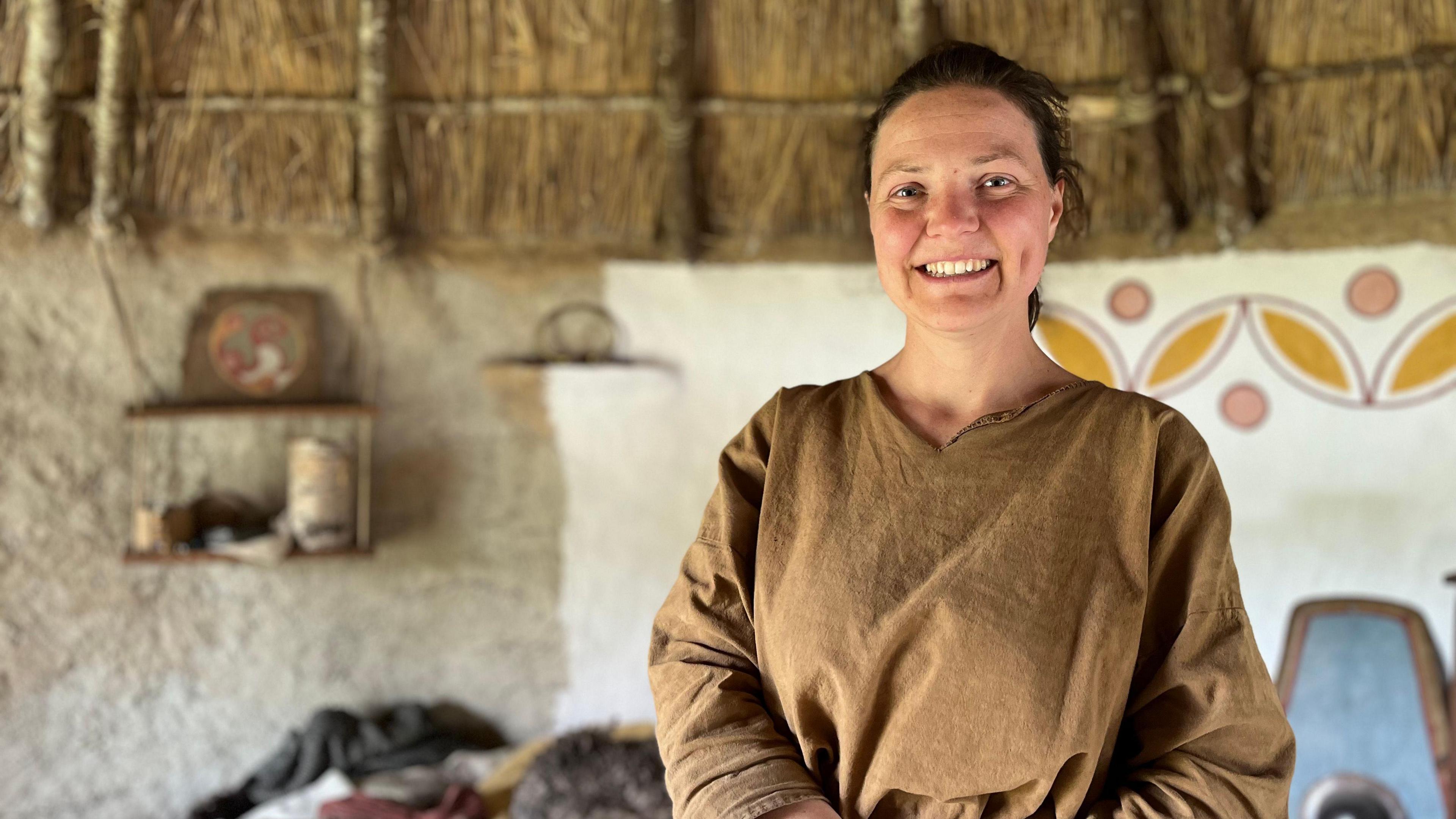
Caroline Nicolay is from Pario Gallico and stays in the roundhouse itself at night
Trustee, Trevor Dolby, said they hoped the changes and re-vamped festival would encourage more families to go along.
"Our aim is to give people a great week, to educate and make sure that they come away enthused with the idea of history," said Mr Dolby.
For the past three years, the festival site - which is in Wiltshire's Chalke Valley - has had an iron age roundhouse for people to look around.
Caroline Nicolay is from Pario Gallico, a business that offers living history workshops and displays, and sleeps in the structure when at the festival, using the bed and tools that everyone can see.
She explained there is a misguided view that pre-history is bleak.
"We see it as very grey, as just a survival time, but the objects we find are absolutely stunning, from a highly socialised and specialised society," she said.
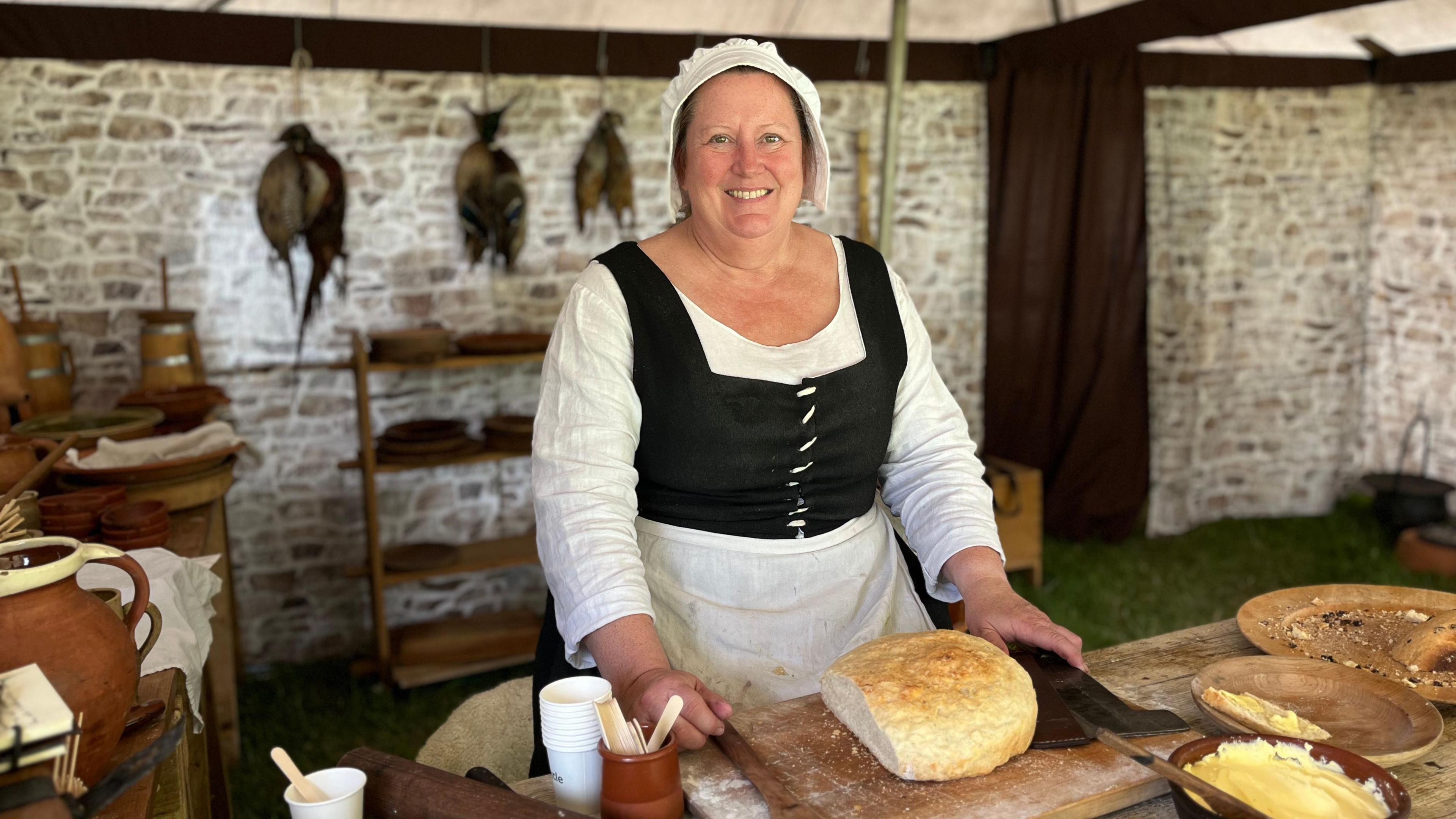
'Jane', whose real name is Tracey Grand, makes historical food live at the festival
A section of the festival is dedicated to historical food, with displays including the history of pie.
Jane's Historical Kitchen - run by Tracey Grand - has been making Tudor recipes this year for people to see and taste.
The kitchen includes a fully working fire, cauldron as well as numerous replica pots, knives and tools, all of which are used.
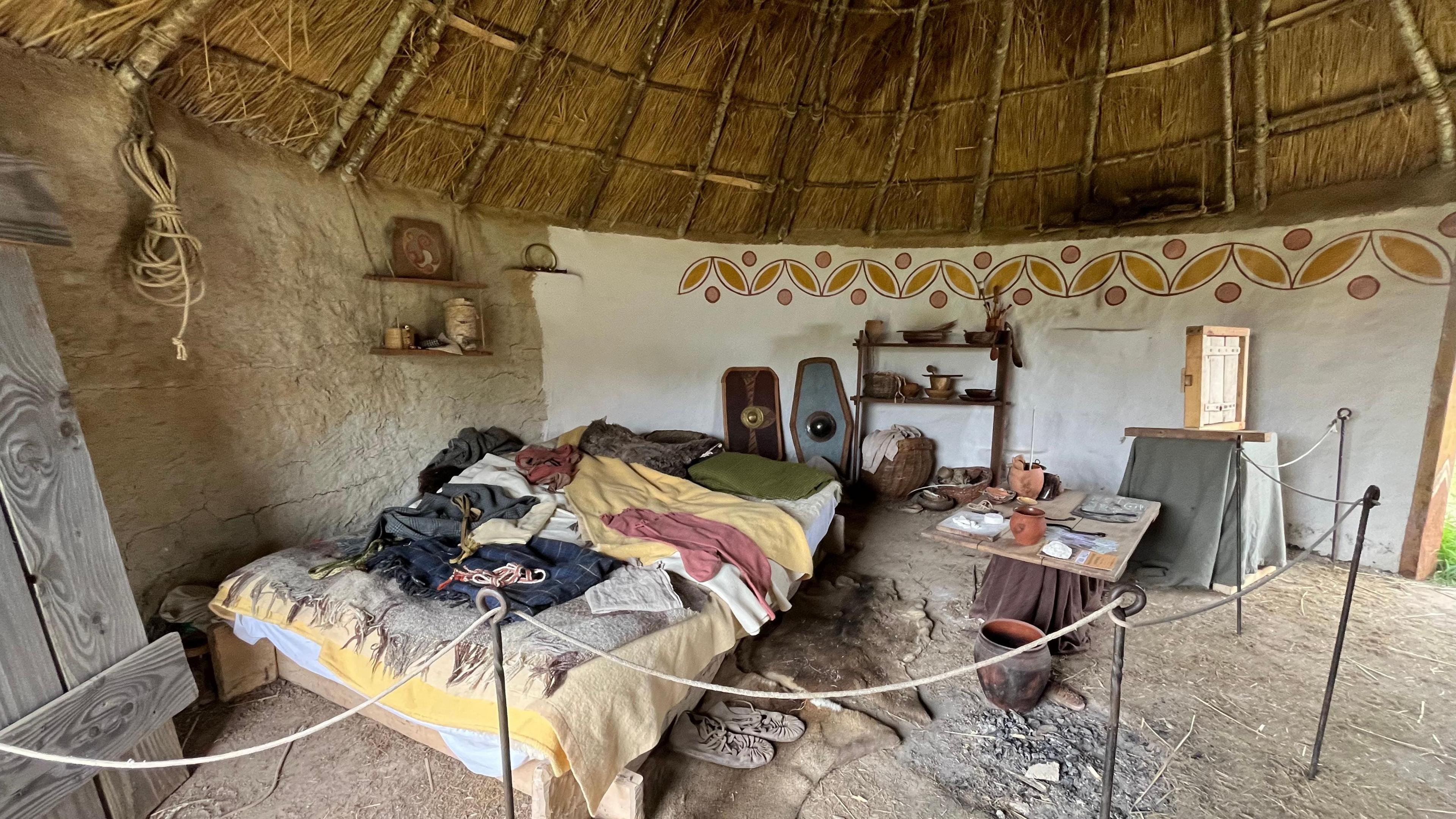
The inside of the iron age roundhouse also shows the decoration it might have had
Ms Grand explained that wealthy people in the period would not eat many vegetables, seeing those coming out of the ground as "dirty", but would consume a lot of bread and meat instead.
However, the poorer in society would be happy to eat vegetables.
"I like the vegetable pottage," she said.
"By the end of the day it looks really disgusting, it sort of goes a grey colour, but it's got so much flavour.
"They wouldn't have tipped what was left away, they would have just added to it everyday."
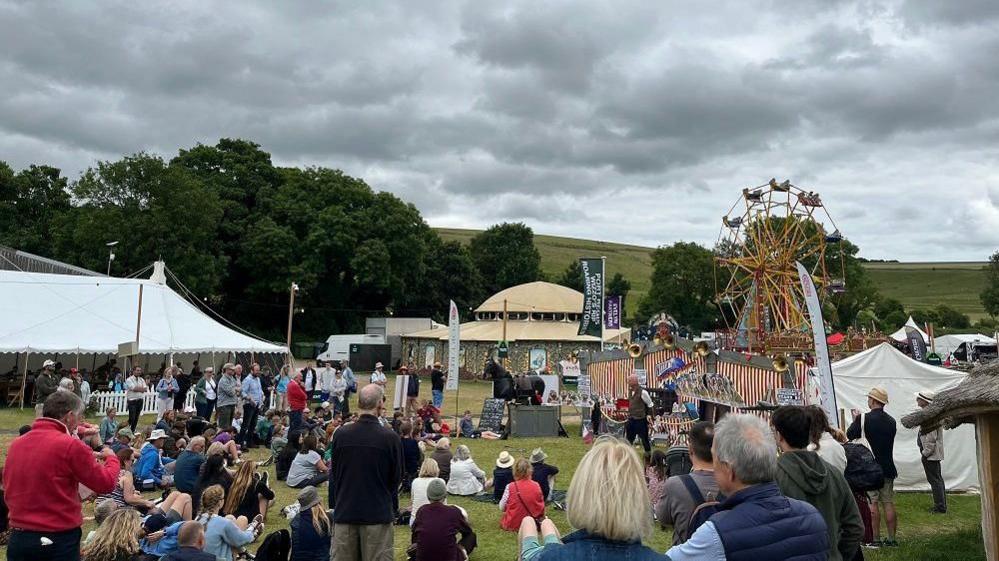
There are outdoor talks and demonstrations, as well as talks with historians inside tents
By inviting more re-enactors to the festival, Mr Dolby said he hoped they had created a wider draw for people, creating an environment where people can immerse themselves in the different historical ages.
"Part of that is creating an environment where people can walk around with their children and see their blacksmith friend over there hammering a piece of iron," he said.
Mr Dolby explained that profits made from the festival will go to Chalke Valley History Trust, which provides grants to support people with an interest in history to access higher education.
Follow BBC Wiltshire on Facebook, external, X, external and Instagram, external. Send your story ideas to us on email or via WhatsApp on 0800 313 4630.
- Published24 June 2024
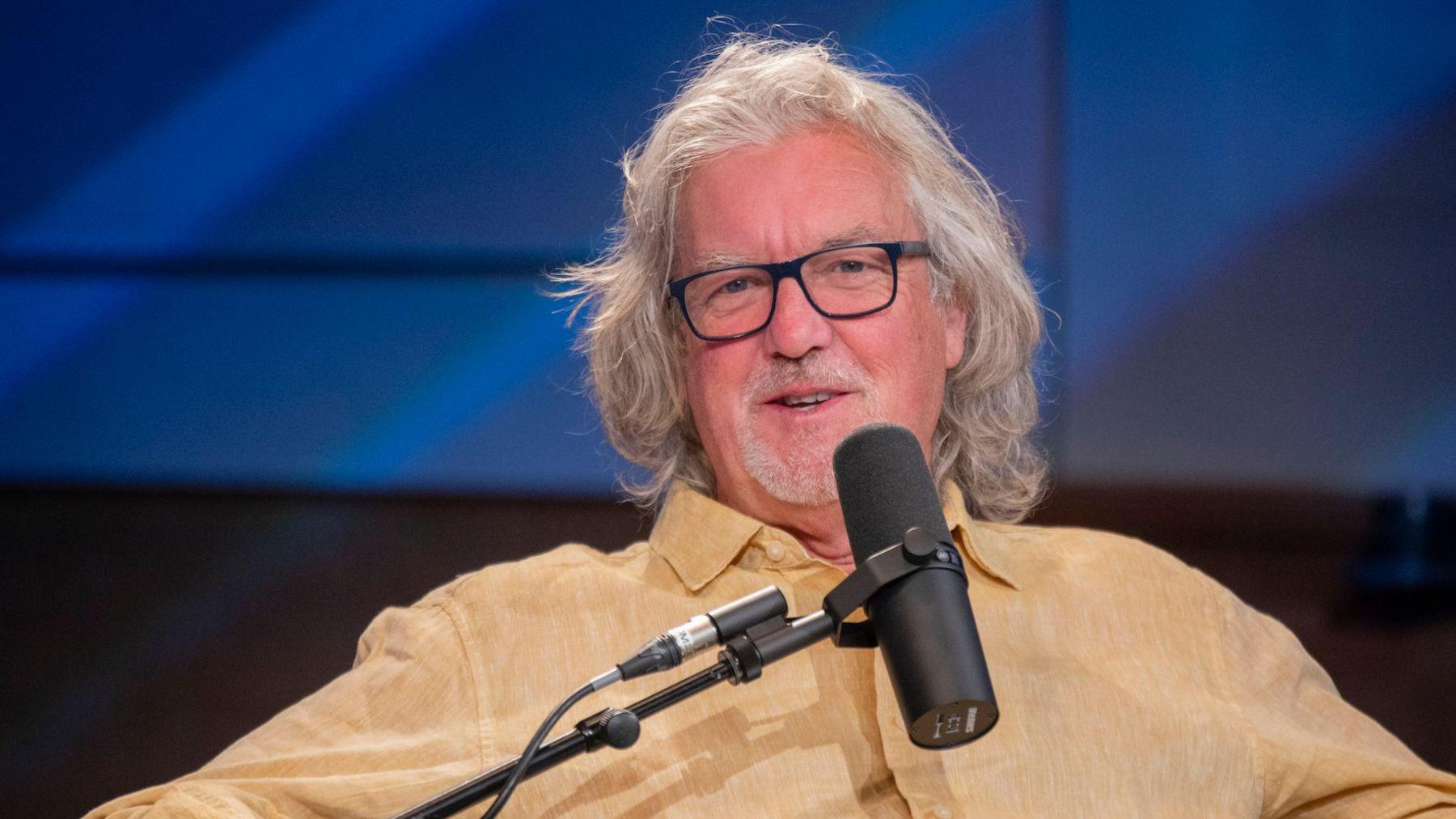
- Published26 May 2024
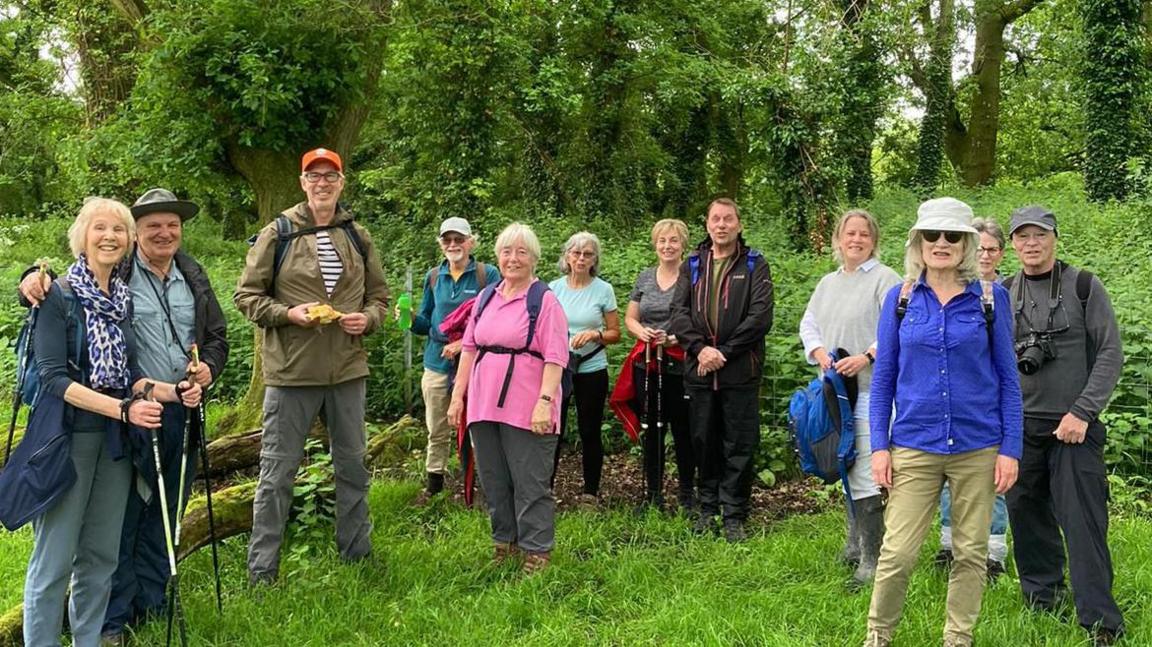
- Published9 June 2024
